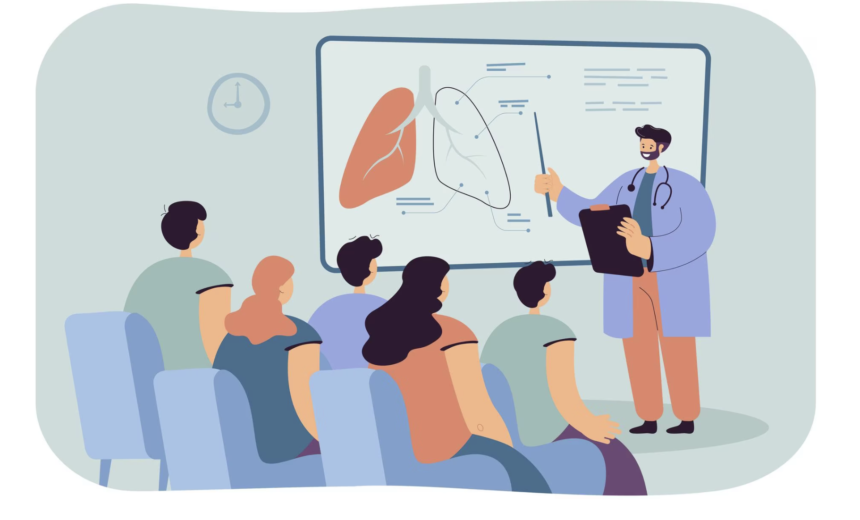Connecting with Pulmonary Hypertension Groups

Living with pulmonary hypertension (PH) can feel overwhelming at times, but you are not alone on this journey. Connecting with pulmonary hypertension groups can provide you with a supportive community, valuable resources, and a wealth of information to help you navigate life with PH. In this guide, we will explore the importance of PH groups, how to find them, and the benefits they offer.
Understanding Pulmonary Hypertension Groups
Pulmonary hypertension groups are organizations, communities, or support networks dedicated to providing assistance, education, and encouragement to individuals and families affected by PH. These groups typically consist of patients, caregivers, healthcare professionals, and advocates who come together to share experiences, offer support, and raise awareness about pulmonary hypertension.
Benefits of Joining Pulmonary Hypertension Groups:
- Emotional Support: Connecting with others who understand what you’re going through can provide a tremendous sense of comfort and validation. PH groups offer a safe space to share your experiences, concerns, and triumphs with individuals who truly comprehend the challenges of living with PH;
- Information and Education: Pulmonary hypertension groups are a valuable source of information about the condition. They offer educational resources, webinars, newsletters, and workshops that can help you deepen your understanding of PH, its management, and the latest research developments;
- Peer Advice and Practical Tips: Members of PH groups often have firsthand knowledge and experience in managing PH-related issues. They can provide practical tips and advice on topics such as medication management, lifestyle modifications, coping strategies, and navigating the healthcare system;
- Advocacy and Awareness: PH groups play a crucial role in advocating for the needs of individuals with pulmonary hypertension. They raise awareness about the condition among the general public, healthcare providers, and policymakers, striving to improve access to quality care, research funding, and support services.
Finding Pulmonary Hypertension Groups:
- Online Search: Conduct a search on reputable websites or search engines using keywords like “pulmonary hypertension support groups” or “PH communities.” This can help you discover national, regional, or local groups with both online and offline presence;
- Healthcare Providers: Consult your healthcare team, including your primary care physician, pulmonologist, or cardiologist, for recommendations. They may be aware of local PH groups or organizations that can provide the support you need;
- Social Media: Join pulmonary hypertension-related groups or communities on social media platforms like Facebook or Twitter. These platforms often host dedicated groups where individuals share experiences, offer support, and exchange information about PH;
- National PH Organizations: Investigate national organizations such as the Pulmonary Hypertension Association (PHA) or the Pulmonary Hypertension Society of America (PHSA). These organizations typically offer resources, support networks, and local chapters.
Benefits of Participating in Pulmonary Hypertension Group Activities
In addition to the general benefits of joining pulmonary hypertension groups, participating in group activities can offer further advantages. These activities are designed to engage members in various ways and promote a sense of community. Here are some benefits of participating in pulmonary hypertension group activities:
- Social Connection: Participating in group activities allows you to interact with others who have shared experiences. Engaging in social events, support group meetings, or online forums can help combat feelings of isolation and build meaningful connections with individuals who truly understand the challenges of living with pulmonary hypertension;
- Peer Learning and Empowerment: Group activities often involve educational sessions, workshops, or guest speakers who share their expertise on managing pulmonary hypertension. These learning opportunities can empower you with knowledge, practical skills, and self-management strategies to better cope with your condition;
- Motivation and Inspiration: Witnessing the resilience and accomplishments of fellow group members can be highly motivating. Participating in activities where individuals share their success stories, personal achievements, or coping strategies can inspire you to continue pursuing a fulfilling life despite the challenges posed by pulmonary hypertension;
- Physical and Mental Well-being: Some pulmonary hypertension groups organize physical activities tailored to accommodate various fitness levels. These activities, such as gentle exercises, yoga, or walking groups, promote physical well-being and can contribute to improved cardiovascular health, stamina, and overall quality of life. Engaging in activities that focus on mental well-being, such as meditation or stress reduction workshops, can also enhance your emotional resilience and mental health;
- Caregiver Support: Pulmonary hypertension group activities often extend their support to caregivers and family members. They provide opportunities for caregivers to connect with others facing similar responsibilities and challenges. Sharing experiences, resources, and caregiving strategies can alleviate stress and provide a supportive network for caregivers;
- Advocacy and Fundraising: Many pulmonary hypertension groups organize advocacy campaigns and fundraising events to raise awareness and support research efforts. Participating in these activities allows you to contribute to the larger cause of improving care, access to treatments, and finding a cure for pulmonary hypertension. By joining advocacy efforts and fundraising initiatives, you become an active agent in driving change and making a positive impact on the pulmonary hypertension community.
Managing Pulmonary Hypertension Through Lifestyle Choices
In addition to medical treatment, adopting a healthy lifestyle can play a significant role in managing pulmonary hypertension. Making positive changes in diet, physical activity, and overall well-being can have a beneficial impact on your condition. Here are some lifestyle choices that may help in managing pulmonary hypertension:
- Balanced Diet: A balanced and nutritious diet is crucial for overall health and well-being. Focus on incorporating a variety of fruits, vegetables, whole grains, lean proteins, and healthy fats into your meals. Limit your intake of processed foods, saturated fats, and sodium, as they can contribute to inflammation and fluid retention. Consult a registered dietitian who specializes in pulmonary hypertension for personalized dietary recommendations;
- Sodium Restriction: Limiting your sodium intake is particularly important in managing pulmonary hypertension, as excessive sodium can contribute to fluid retention and increased blood pressure. Be mindful of hidden sources of sodium in processed and packaged foods, and opt for fresh, whole foods whenever possible. Flavor your meals with herbs, spices, and other low-sodium seasonings to reduce the need for added salt;
- Regular Physical Activity: Engaging in regular physical activity can help improve cardiovascular health, enhance endurance, and manage weight. Consult your healthcare provider before starting an exercise routine and work with a qualified exercise professional who has experience with pulmonary hypertension. Aim for a combination of aerobic exercises, strength training, and flexibility exercises tailored to your abilities and limitations.
Conclusion
Participating in pulmonary hypertension group activities offers unique benefits that go beyond the support and information provided by the groups themselves. Engaging in social connections, peer learning, motivation, physical and mental well-being activities, caregiver support, and advocacy initiatives can enrich your experience, enhance your overall well-being, and foster a sense of belonging within the pulmonary hypertension community. Embrace the opportunities to actively participate in group activities and maximize the benefits they offer to enhance your journey with pulmonary hypertension. Remember, together we are stronger.
FAQ
Pulmonary hypertension groups offer a variety of activities to cater to the diverse needs and interests of their members. Some common group activities include support group meetings, educational sessions, social events, exercise programs, fundraising initiatives, and advocacy campaigns. The specific activities may vary depending on the group and its resources.
Participating in group activities can provide numerous benefits for individuals with pulmonary hypertension. It offers opportunities for social connection, peer learning, motivation, physical and mental well-being, caregiver support, and advocacy involvement. Engaging in these activities fosters a sense of community, provides valuable information and resources, promotes self-management skills, and empowers individuals to lead fulfilling lives despite the challenges posed by pulmonary hypertension.
Yes, many pulmonary hypertension groups now offer virtual or online activities to ensure inclusivity and accessibility. These activities may include virtual support group meetings, webinars, online forums, educational videos, and social media engagement. Virtual activities allow individuals to connect and participate from the comfort of their own homes, overcoming geographical limitations and enhancing convenience.
Absolutely. Many pulmonary hypertension groups welcome family members and caregivers to participate in group activities. Recognizing the importance of caregiver support, these activities may provide a platform for sharing experiences, offering resources, and addressing the unique challenges faced by caregivers. Involving family members and caregivers in group activities promotes a comprehensive support system for individuals with pulmonary hypertension.
To find pulmonary hypertension groups and their activities, you can start by reaching out to reputable organizations specializing in pulmonary hypertension, such as medical centers, patient advocacy groups, or online communities. These organizations often maintain directories or provide information about local support groups and activities. Additionally, healthcare professionals, such as doctors or pulmonary hypertension specialists, may be able to guide you towards relevant resources and groups in your area.
The cost of participating in group activities can vary depending on the organization and the nature of the activities. Some activities may be offered free of charge, while others may involve nominal fees or require membership in the group. It’s advisable to inquire about any associated costs or membership requirements beforehand to make an informed decision based on your preferences and financial considerations.
Remember, participating in pulmonary hypertension group activities is voluntary, and you can choose the activities that align with your needs and interests. Don’t hesitate to reach out to the group organizers or healthcare professionals for any specific questions or concerns you may have.








